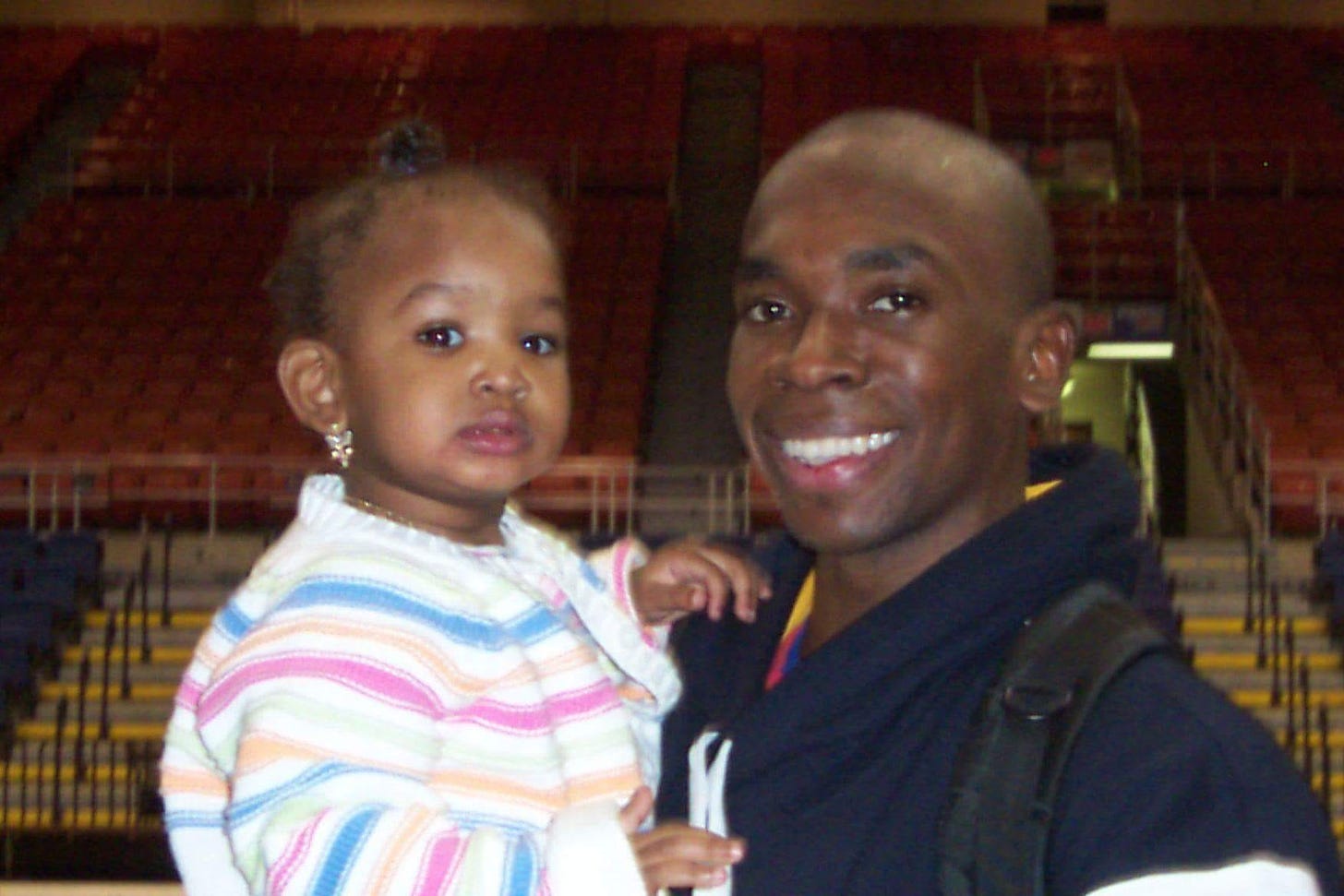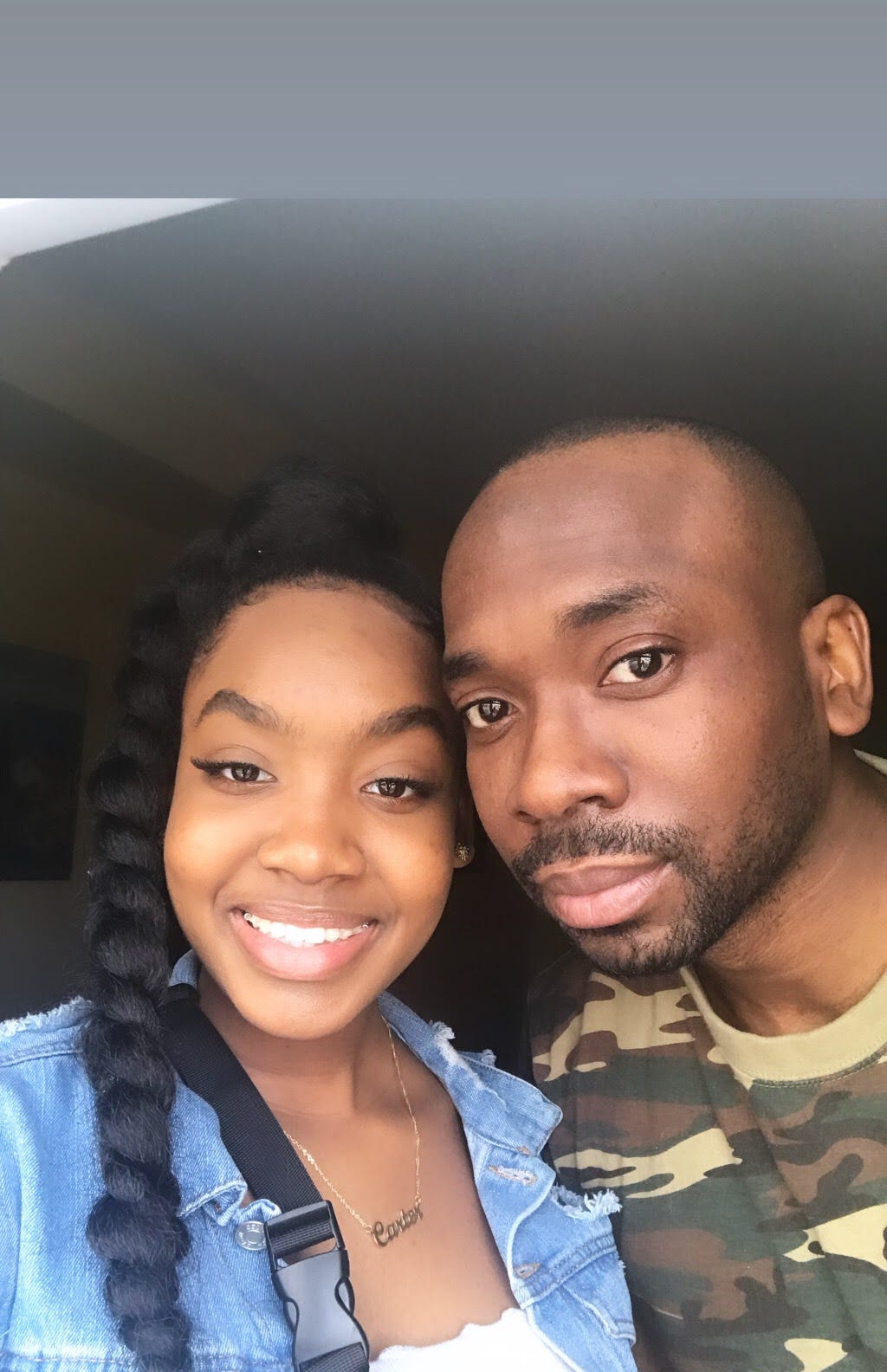Written by: Kern Carter
My friend used to get upset at me when I referred to myself as homeless. I knew what he meant; that whatever I was going through wasn’t comparable to someone who actually had no place to live. But home meant something different to me. Something I didn’t have at the time I made those comments.
My daughter’s eyes are closed. She’s on her stomach in her crib with her face to the side, her back gently moving up and down with each tiny inhale. My cousin put that crib together. He came by months before my daughter was born and set it up while I watched and handed him pieces. The basement we lived in was so small that it took up much of the room, and with our bed to the other side, there was no space for anything else.
That crib was my daughter’s first home. It was where she slept and cried and where she was the most safe. Outside of those columns, I couldn’t protect her from the tensions between her mother and I. Tensions that would escalate every inch she grew, every new word she learned, every argument she overheard.
I contrast that with my own childhood. Back to when my two brothers and I first moved to Canada. All three of us slept on one bed, but the walls to that room were impenetrable. My mother built an atmosphere that protected us, that guided us, that made every day feel safe. Even when we moved buildings on the same side of the street, where gangsters smoked weed in the staircases then ate dinner at your home. Where criminals robbed other criminals in opposing neighbourhoods, came back to the building and played basketball; those walls in our home were like tall gates and only our mother had the key.
Even when my mom wasn’t with us, her presence was an influence. Before we moved to Canada, she was here on her own. She knew we needed a home back in Trinidad and she couldn’t trust my father to build it. She left us with our grandparents instead. In that house, my aunt walked me to school, my grandfather taught me how to tie my shoe, my uncle made me wash his car. It was the most beautiful time of my life. We were rich with family who shared an abundance of love.
I realize now that I’ve been searching for a home ever since I had my daughter. From the basement she was born into, to the community housing building we moved to next, to my one bedroom apartment—none of it ever felt like home. Nothing ever felt like ours. It took getting full custody for those foundations to be built, for that gate to be installed, for her to trust me with the key.
We’re going on six years of our first home. Still, I can’t help but wonder what damage I’ve already done. 13 years of displacement, 13 years of distrust, 13 years without a home. What does that instability do to someone? Someone in their childhood who should expect the opposite?
Sometimes I’m working these things out as I type. Writing is becoming something else for me, and by that I mean something other. The roots of these emotions only reveal themselves through prose. It’s like once the words are on the page, I can see every scene more clearly. I’m free to explore their causes and incite real world conversations that lead to questions and answers I’d never considered.
It’s why my current mission is to buy a house. Even though that search for home feels accomplished, there’s something more my ego craves. It wants to say, “Look. Look what I’ve done. Look at this house we never had. Look at these three bedrooms. Look at this backyard. Look at how much of a family we are. Is this enough? Do you forgive me yet?”
Do you forgive me yet?
Is it really damage or is that just life? Is it naive to think that our existence should be easy? Was it too much to ask that my daughter’s upbringing be better than mine? I know much of that wish wasn’t granted. No genie was coming to save us. But as my daughter nears the end of her teenage years, as she continues to search for who she is, her quest will inevitably direct her back to her past. She’ll become brave enough to ask the questions I need to answer, strong enough to find the ones I can’t. On her journey to becoming who she wants to be, she will have to reckon with who she was, with who I was, with who we were.
Recently, we had a conversation about who she could’ve been. Growing up in so much chaos, she could’ve reacted more extremely. She could’ve rebelled in school, could’ve followed the wrong friends, she could’ve punished us for compromising her childhood. None of those things happened. Instead, she threw herself into school and became a great student. She made great friends she still has to this day. She works at being a good person. All of this inspite of her parents.
I’m proud to at least be able to say that wherever I am will always be her home. She knows that with certainty. House or no house, renting or owning, that peace of mind will stay with her. Still, I look at the homes my brothers have created. Both of them are married, living in houses their children can be proud to grow up in. Both are loving parents and while I’m sure they have their own problems, I know my nephew and nieces are happy. My daughter experienced plenty of happy moments, but I’d be recreating history to say she had a happy childhood. I know she didn’t. We’ve spoken about this. I’m not sure I’ll ever make peace with that.
She’s happy now. We talk about that, too. I see it in the way she sticks her tongue out at me when she sees me writing in the mornings. I feel it when she asks if I want to see her new designs, or a website she’s built, or a new idea she’s working on. We talk about books she’s reading, shows she’s watching, the new internship she’s looking for. Our home now is beautiful.
When I used to say I was homeless, what I meant is that there is no home here. Walls and a roof are only the structure. A home is fully alive. I didn’t recognize that until I helped create a life that needed a home and we found a way to build it together.





